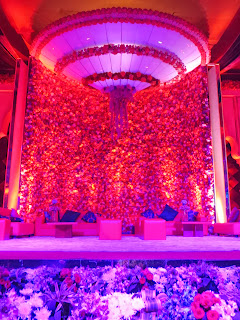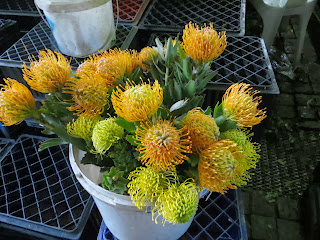It seems that the 20-second
wrap-pleat-tuck-and-drape sequence that looked so effortless in the shop must
come with a lifetime of practice. They
had offered to sew in the pleats for me, but that sounded like it would be
taking away from the authenticity of the experience. The offer of sending
someone to the hotel to dress me, also sounded a little too indulgent. Imagine braving
the Delhi traffic for a 20-second duty.
Well, getting into the sari in my
hotel room was a rather more complicated process than I thought. The person,
who housekeeping sent up after my frantic call, was as flummoxed by the
slippery, heavily-embroidered material, in spite of being dressed in a sari
herself. Hers, part of the uniform, was a much simpler, lighter affair but she
confessed that she arrived at work an hour earlier to dress. Half an hour, some
compromise and many safety pins later, I reasonably resembled the real thing. I decided to leave my camera behind at the
hotel, unsure of how I would manage taking photographs while trying to
negotiate my way around without stepping onto my sari and coming undone.
My daughter, who was dressed in a sort of Indo-Western fashion, didn't have the same navigation concerns and could wield her camera more easily. Our first function was the Sangeet, attended by about 2 000 guests. I alternated between gawking at all the
beautiful people around me and at the decorations. Flowers
adorned every surface, competing for attention with colourful chandeliers
hanging from the ceilings. There was enough lights, music and dancers with bare
midriffs for a Bollywood movie set. It took us at least an hour to distinguish the bride and groom
amongst all the other leading stars gathered around.
In spite of all the glitz and glamour, the evening was relaxed and friendly and we made many new friends who had also been wandering around gawking, to keep us company over the following few days of celebration. At the end of the evening, heaving
a sigh of relief that I had not unravelled, I leaned over sideways and flopped
into the back of the car...not quite as Grace Kelly would have done it.






































